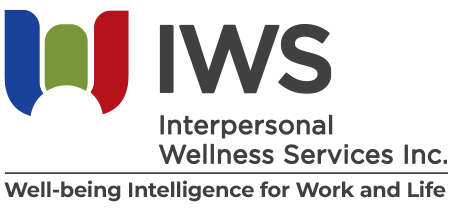Have you ever wondered how career challenges have impacted your professional self-esteem?
Over my 26-year journey as a leadership coach and conflict analyst, I've delved into the myriad ways workplaces shape an individual's professional and personal identity. A staggering 80% of workers report experiencing regular stress due to a negative workplace encounter, indicating a widespread issue with serious implications. Here are some insights from my experiences, with particular emphasis on a client whom I will call “Anna”, to shed light on the often-overlooked emotional challenges in professional settings.
The Client's Story: A Tale of Transformation
"Anna," a middle manager in a tech firm, approached me, due to another workplace conflict with her employees. It was one of a string of incidents that had seen her being disciplined and overly judged. Despite attending numerous trainings, Anna felt disillusioned. Her breakthrough came when she realized my role wasn’t to change her but to empower her to steer her career and reputation. This marked a pivotal moment, challenging the normative practices of her corporate culture.
Anna's Challenge: Anna was frequently overlooked in meetings, and her ideas were often credited to others, leading to a profound sense of invisibility and diminished self-worth. She was a diverse leader without allies among her peers.
The Core Issues: A Deeper Understanding
Anna's experience is far from unique. Many employees face similar challenges, which I categorize as follows:
Compassion and Understanding Deficit: A survey by the Empathy Business found that 80% of employees would be willing to leave their job for a more empathetic employer, underlining the need for empathy in leadership.
Low Vulnerability Tolerance: In environments where vulnerability is seen as a weakness, employees like Anna often wear a façade, stifling creativity, and authentic connection.
Poor Employee Engagement: Disengagement often stems from a lack of alignment with the organization's mission, as seen in a Gallup poll where only 30% of employees felt engaged in their work.
Poor Communication Skills: Miscommunication can lead to feelings of incompetence, as highlighted in a study by the Economist Intelligence Unit, where 44% of respondents cited communication barriers as a leading cause of workplace failures.
Poor Conflict Resolution Skills: Ineffective conflict management heightens workplace tension and leaves lasting emotional scars.
The Long-Term Impact: A Ripple Effect
The implications of such workplace dynamics are profound. Employees like Anna often face integrity and trust issues, impacting their career trajectory and relationships beyond the office. This aligns with research from the American Psychological Association, which suggests that workplace stress can lead to long-term psychological distress.
The Path Forward
The story of Anna and countless others calls for a more holistic workplace approach. Leadership must foster an environment of compassion, understanding, and effective communication. These are skills are also enhanced through the well-being intelligence curriculum to ensure that employees have a more comprehensive approach to developing human skills in the digital age.
Here are some strategies for improvement:
- Empathetic Leadership Training: Leaders should be trained in empathy and emotional intelligence.
- Open Communication Channels: Establish regular and transparent communication forums.
- Conflict Resolution Workshops: Equip employees with skills to manage conflicts constructively.
- Employee Wellbeing Programs: Introduce programs focusing on mental health and wellbeing.
By adopting these strategies, we can create workplaces that not only boost productivity but also nurture the emotional well-being of every employee. Remember, a healthy workplace is not a luxury but necessary for a sustainable and thriving organization.

If you relate to my client’s story or have your own story to add. Join the upcoming 8-week coaching program on Professional Self-esteem.
To Your Wellness,
Joyce

